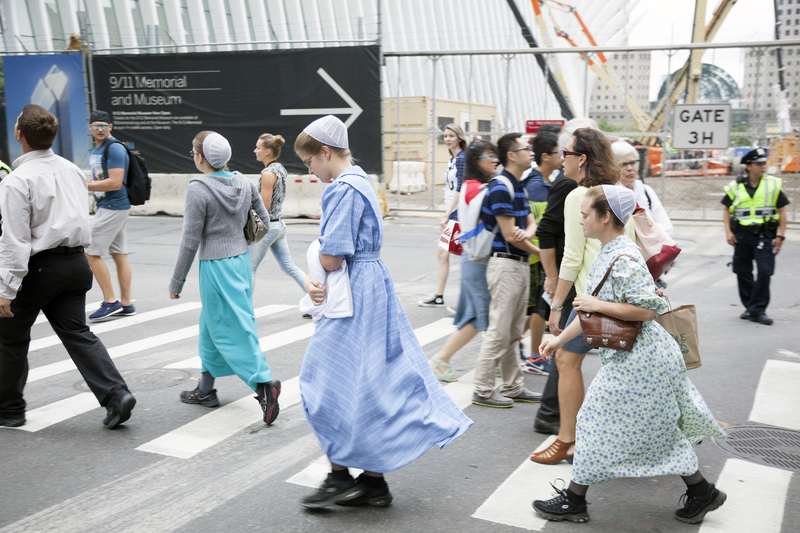Claim: A claim has circulated suggesting that a boy in Texas died from measles because of Robert F. Kennedy Jr. (RFK Jr.) and Republicans’ anti-vaccine positions. The claim implies a direct causal link between their rhetoric or policies and the death, with the measles case occurring in the Mennonite community.
Fact-Checking the Claim: The Measles Death in Texas
A school-aged child died from measles in West Texas, as confirmed by the Texas Department of State Health Services on February 26, 2025. This marks the first measles-related death in the United States since 2015. The child was unvaccinated and resided in Lubbock, where they were hospitalized. The outbreak, the largest in Texas in nearly 30 years, has infected at least 124 people across nine counties, predominantly in the rural South Plains region, with 80 cases in Gaines County alone.
The Mennonite Community Connection
The outbreak is concentrated in a “close-knit, undervaccinated” Mennonite community, particularly in Gaines County. This religious group has historically had lower vaccination rates, often citing religious or cultural objections. In Gaines County, nearly 14% of school-aged children opted out of at least one required vaccine during the 2023-24 school year, a rate significantly higher than the state average. Many Mennonite families homeschool or attend private religious schools, which may not enforce vaccination mandates as strictly as public schools.
RFK Jr.’s Role and Anti-Vaccine Stance
RFK Jr., confirmed as U.S. Secretary of Health and Human Services in February 2025 under President Donald Trump, has a well-documented history of vaccine skepticism. He has questioned the safety of childhood vaccines, including the measles, mumps, and rubella (MMR) vaccine, despite overwhelming scientific evidence affirming its safety and efficacy (97% effective with two doses). However, RFK Jr. assumed his role only recently—after the outbreak began in late January 2025. During a Cabinet meeting on February 26, 2025, he acknowledged the outbreak, stating the Department of Health and Human Services (HHS) was “watching it” but downplayed its severity, noting that measles outbreaks occur annually. There is no evidence he has implemented policies or actions directly affecting vaccination rates in Texas since taking office.
Republican Influence
Some Republicans have supported policies allowing vaccine exemptions, including Texas’s conscientious exemption law, which permits parents to opt out of school vaccination requirements for non-medical reasons. This law has been in place for years and aligns with broader “health freedom” sentiments among some conservative factions. However, the Mennonite community’s vaccine hesitancy appears rooted in long-standing religious beliefs rather than recent Republican rhetoric. Vaccination rates in Texas have dipped slightly post-COVID-19 (91% for MMR among kindergartners, below the 94% herd immunity threshold), but this trend began before RFK Jr.’s appointment or intensified Republican anti-vaccine advocacy.
Causal Link to the Death
The claim hinges on RFK Jr. and Republicans causing the death by fostering anti-vaccine sentiment. However, the child’s death occurred in a community with a pre-existing pattern of vaccine refusal, independent of RFK Jr.’s recent appointment or current Republican messaging. The outbreak’s strain (D8) is linked to a virus circulating in Europe and the Eastern Mediterranean, not a vaccine-related issue or a direct result of U.S. policy changes. Public health experts attribute the outbreak to declining vaccination rates in specific pockets like the Mennonite community, not a sudden shift driven by RFK Jr. or Republicans.
Verdict
False. The claim that a boy died in Texas from measles “because of” RFK Jr. and Republicans’ anti-vaccine stance is not supported by evidence. The death occurred in an unvaccinated child within the Mennonite community, where vaccine hesitancy is a long-standing cultural norm, not a new phenomenon tied to RFK Jr.’s recent role or Republican policies. While RFK Jr.’s skepticism and some Republicans’ exemption-friendly policies may contribute to broader vaccine hesitancy, no direct causal link exists between their actions and this specific case. The outbreak began before RFK Jr. took office, and the community’s vaccination practices predate his influence.
Context and Implications
This measles outbreak highlights the risks of low vaccination rates in isolated communities, a problem exacerbated by misinformation and exemption policies. While RFK Jr.’s appointment raises concerns among public health advocates given his vaccine skepticism, pinning this death on him or Republicans oversimplifies a complex issue. The real challenge lies in addressing vaccine hesitancy at the community level—something RFK Jr. now has the opportunity to tackle as HHS Secretary. Whether he will promote vaccination or further fuel skepticism remains to be seen, but as of now, the Texas case reflects pre-existing conditions rather than his direct influence.

